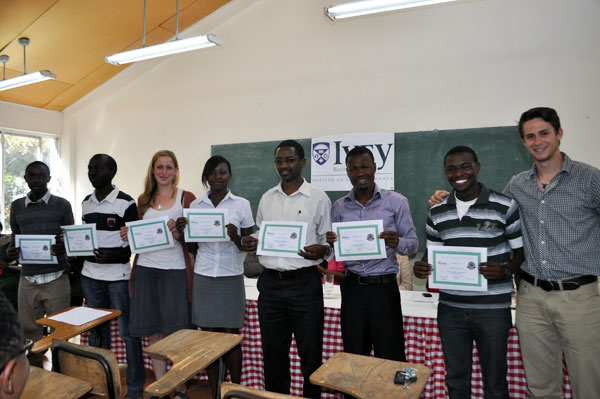African economic growth since 2000 and what is promised in the next decade has become a top global story. It is providing the foundation for transformation and hope that many African countries will use economic trade, versus aid, to drive their countries away from poverty, food insecurity and under-resourced healthcare and education, towards growing economic prosperity, creation of a healthy, educated population and stable political institutions.
Nevertheless, one resource remains critically underdeveloped and undersupplied – managerial talent.
Recent research by the Africa Management Initiative claims “managers are the engines of growth and establish the institutional mechanisms that create prosperity. Good managers go on to lead companies, NGO’s, government departments and sometimes, nations.”
Managerial skill is what transforms the opportunities inherent in natural and human resources into vibrant economies via employment opportunities, company growth, investment returns and national competitiveness. Excellent managerial skill combines sound business knowledge with creativity, planning, ethics, critical thinking and analytical capability – skills which the AMI study of African employers suggests are currently under-developed in African business people.
Case-Based Business Education
Research shows that these are precisely the skills that can be developed through the use of case-based business education – a foundational pillar of Ivey’s distinctive advantage globally. Hence the interest of African Business Schools to build these capabilities so that they may be the vehicle by which strong African management talent is developed. Ivey is uniquely capable of delivering on this partnership.
There are only a handful of Business Schools around the globe that have made the same level of commitment to case-based management education as we have. While others may use cases to some extent, Ivey’s history since it’s inception in 1922 is steeped in the tradition of this pedagogy as our teaching method and supported by the second largest library of case materials globally, via our Ivey Publishing division. In fact, the Ivey 39 Country Initiative which makes this library free to the 39 least developed countries in the world was an motivating force for the creation of the Ubuntu Management Education Initiative – an effort to support newly available free case material with the capacity to use it effectively.
The Ubuntu Management Education Initiative
With this as backdrop the Ubuntu Management Education Initiative (U-ME-I) at Ivey began in 2012 as an elective course for Ivey students who enroll and participate in late April through May each year. It also involves African Business School undergraduate students who enrolled at their local institutions in a unique peer to peer course taught by these Ivey student instructors. Thus a unique form of peer to peer networking and management development is accomplished for both African and Ivey student participants.
Concurrently the Faculty Director offers capacity building faculty development workshops to assist partner school faculty build this important capability. Finally each year we write 5-7 indigenous Africa business cases, developing a world class library of knowledge about the African business context.
